(Bloomberg) -- Yevgeny Prigozhin — a Kremlin confidante better known as “Putin’s chef” or as the founder of the mercenary outfit called the Wagner Group — saw his defamation case thrown out in May by a London court because his lawyers no longer wanted to represent him.
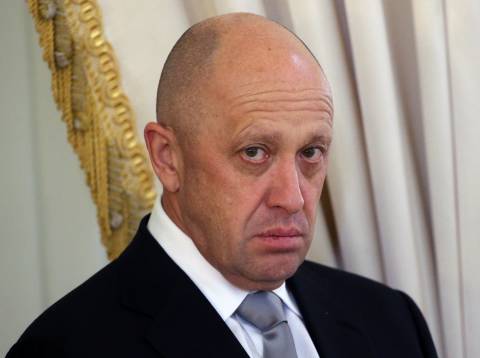
The 61-year-old ally of President Vladimir Putin, sanctioned by the UK, US and the European Union, had sued the investigative journalism organization Bellingcat for libel and was accused by its founder of using the courts to intimidate and silence the group. The case collapsed after Discreet Law, the firm representing Prigozhin, withdrew, saying it could not risk its reputation after Russia’s invasion of Ukraine. Prigozhin was livid, with his company saying in a statement that it was “objectively impossible to find another English legal representative.” One British law firm told his assistants that if it took up his case, there would be “nothing left of our firm.”
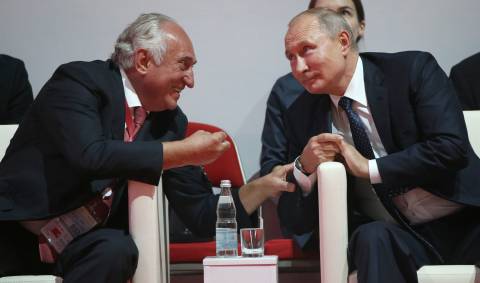
After a sizzling decade when London was the venue of choice for rich Russians fighting cases involving everything from divorces and defamation to cross-border disputes, the city’s law firms are agonizing over whether it’s just too risky to work for them. The so-called Magic Circle of London’s elite law firms that had a presence in Moscow — Allen & Overy, Freshfields Bruckhaus Deringer, Linklaters and Clifford Chance — said they’re shutting or winding down those offices. Some of the most prominent UK lawyers working with Russian billionaires have been publicly named and called enablers by lawmakers and even face the prospect of US visa bans. The UK has warned it could make it illegal for lawyers to offer services to Russians in Russia.
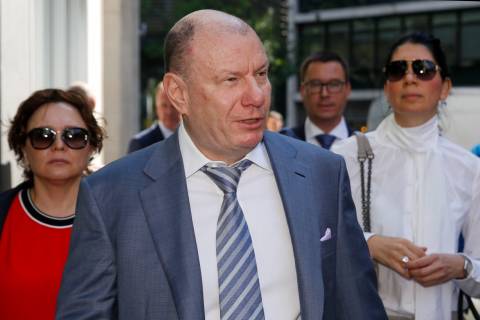
“It will shrink the pool of deep-pocket litigation work for firms concerned to protect their reputation with UK Plc,” said Richard Moorhead, a professor of legal ethics at the University of Exeter. “The crisis has shone a light on the absence of proper thinking about values in law firms. They have started to scramble to keep up.”
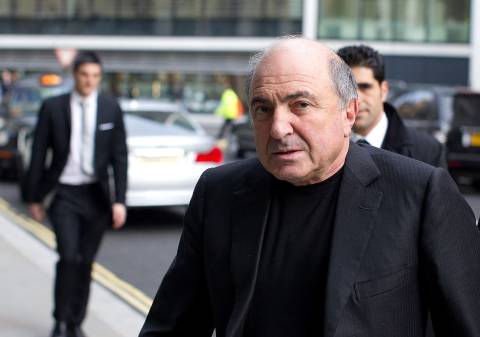
A decade after the $6.5 billion lawsuit between oligarchs Roman Abramovich and Boris Berezovsky over sharing profits from oil company Sibneft became Russia’s first trial at London’s top commercial court, that juicy corner of the city’s legal business has all but dried up.
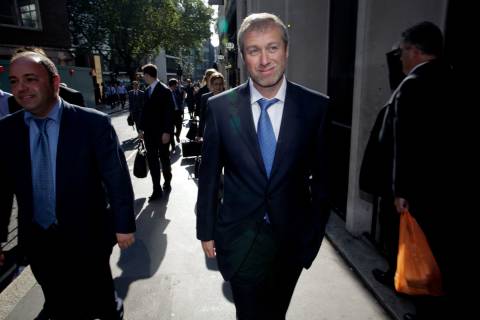
But that isn’t stopping the firms from applying for licenses to try and work with Russians. The new UK Office of Financial Sanctions Implementation said in a statement on July 28 that it is being so inundated by applications and is so backlogged that it can’t meet its target to respond within four weeks.
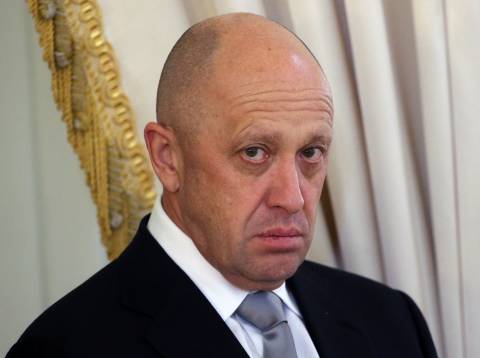
The rich fees from the business explains that drive. The Berezovsky-Abramovich case, in which lawyers earned a whopping £70 million ($83 million) in what was perhaps a record at the time, was the start of years of blowout fees from Russian lawsuits. Russia was one of the most active nations in London’s courts for the fifth straight year in 2021, with the number of litigants doubling since 2017, according to research from Portland Communications. It was the second most represented nation in the capital’s commercial courts, behind British litigants.
Then in February, Putin ordered his troops to invade Ukraine. The UK slapped sanctions against multiple entities and individuals. Now, with the conflict showing no signs of ending, once prized clients are shunned. Cases are gummed up by procedural and other constraints, and lawyers can only get paid with government approval.
Prigozhin — who earned his Putin’s-chef moniker because his catering business hosted dinners attended by the Russian president, and whose private paramilitary forces have taken part in conflicts in countries including Syria and Mali — was so frustrated with his case, he sent a scathing letter to Judge Matthew Nicklin. The judge said its contents might be thought “to impugn the independence of the judiciary.”
Some other cases, like the $5 billion divorce of Russia’s richest man Vladimir Potanin, who was sanctioned by the UK, are in limbo. The billionaire won the right to appeal a case brought by his ex-wife. Potanin appeared at a private family court hearing via video link from his Russian home in May, where the judge urged him and his ex-wife to try and settle the dispute given the “extremely troubled times.”
Other lawsuits face logistical issues. Like the April case at the commercial court where lawyers acting for Russian bank Vneshprombank LLC were trying to hold down a freeze on assets held by a fugitive banker and one-time boss of the country’s bobsleigh team. The suit was being financed by a litigation funder, A1, previously owned by two of Russia’s richest men — sanctioned billionaires Mikhail Fridman and Petr Aven. A1’s attorneys were banned from entering the UK and the judge refused a video link to Moscow. The attorneys tried to argue that A1 had been sold to a businessman not touched by UK sanctions, and were no longer owned by Fridman and Aven’s Alfa Group.
Dwindling Russian cases hurt London’s courts and the UK economy, which benefit immensely from international litigants. The legal sector contributed to a trade surplus of £5.6 billion in 2020, according to research from the advocacy body City UK. International cases made up 74% of the commercial court’s caseload in 2020-2021, according to last year’s annual report issued by the court.
When cases were picking up a decade ago, then-London Mayor Boris Johnson spoke approvingly of the role the city’s courts play.
“I have no shame in saying to the injured spouses of the world’s billionaires if you want to take him to the cleaners... take him to the cleaners in London,” Johnson said in 2012. “Because London cleaners will be grateful for your business.”
Russian interest in London’s commercial, administrative and family courts happened in similar ways to the country’s disproportionate influence in luxury shopping and high-end properties in the UK, which trickled eventually through to lobbying of its politics. For international influence and legitimacy, wealthy Russians were willing to fight their battles thousands of miles from home.
But there was another crucial reason. Russia’s oligarchs wanted London judges, with their reputation for principled fairness, to adjudicate on their disputes in Russia and inserted London as the jurisdiction of choice for litigation.
“People are coming to London because you’re getting an independent judiciary applying a proper system of law that people understand; and coming up with outcomes that are regarded as accessible,” said Ali Malek, a leading Queen’s Counsel, a title given to the most senior advocates in court. Malek had a front row seat in the Berezovsky-Abramovich court battle by representing another powerful Russian, Vasily Anisimov, as an additional party in the fight.
For another prominent QC, working on some of London’s Russian trials was like representing two highwaymen who then turned to a judge to decide who had stolen the loot. “In the past, they’d have both been hanged,” the QC said.
With Russian clients now pariahs, London’s lawyers are trying to reconcile their old welcoming ways with a new world where they’re required to show they have a government license to even get paid for their work with sanctioned targets. It’s an uphill battle, warned Sara George, a white-collar-crime lawyer at Sidley Austin.
“Even with a license, many banks will not handle the proceeds,” she said.
The public focus of lawyers, their firms and associations has been to insist that they need to offer representation, that even sanctioned oligarchs should be able to access a lawyer. But that hasn’t gone down very well.
In May, the London International Disputes Week — the city’s annual chance to bolster its reputation as the preeminent destination for high value, cross-border disputes — dropped a session on Russian litigation from its program at the last minute. The organizers said any discussion would “pale into insignificance while a war is going on and people are suffering and dying.”
At another event, a lawyer for Washington DC-based Steptoe & Johnson was challenged by a Ukrainian attorney over comments that the UK’s rules requiring licenses unfairly restricted Russian litigants. Neil Dooley, a partner in Steptoe’s London office, said the inability of Russians to pick any lawyer they wanted was like the then Abramovich-owned football team Chelsea FC playing a cup final without being able to pick its team. The Ukrainian attorney, based in London, replied that there were “more fundamental rights” like the right to life, according to a report by Global Arbitration Review, which hosted the event. Dooley declined to comment further.
Meanwhile, some lawyers who worked with Russia’s wealthy in defamation claims against journalists have been threatened with more serious consequences, including visa bans to the US.
The US “must establish deterrents for foreign enablers serving individuals who are undermining democracy and hold to account those enablers who are currently performing this unscrupulous work,” US Congressman Steve Cohen wrote in a letter dated April 18 to Secretary of State Antony Blinken.
The invasion of Ukraine and the sudden abandonment of Russian clients who made them millions didn’t come as a shock to everyone in the legal world. Simon Bushell, a lawyer who set up law firm Herbert Smith Freehills’s Russian practice, said the signing of the landmark 2012 Magnitsky Act, which allowed the US to sanction foreign officials for human rights violations, made it clear to him that engagement with the Russia would narrow.
“The invasion of Crimea two years later confirmed this, and as I saw it that was the beginning of the end for the Moscow offices of the international law firms,” he said.
More stories like this are available on bloomberg.com
©2022 Bloomberg L.P.
Author: Jonathan Browning and Katharine Gemmell
